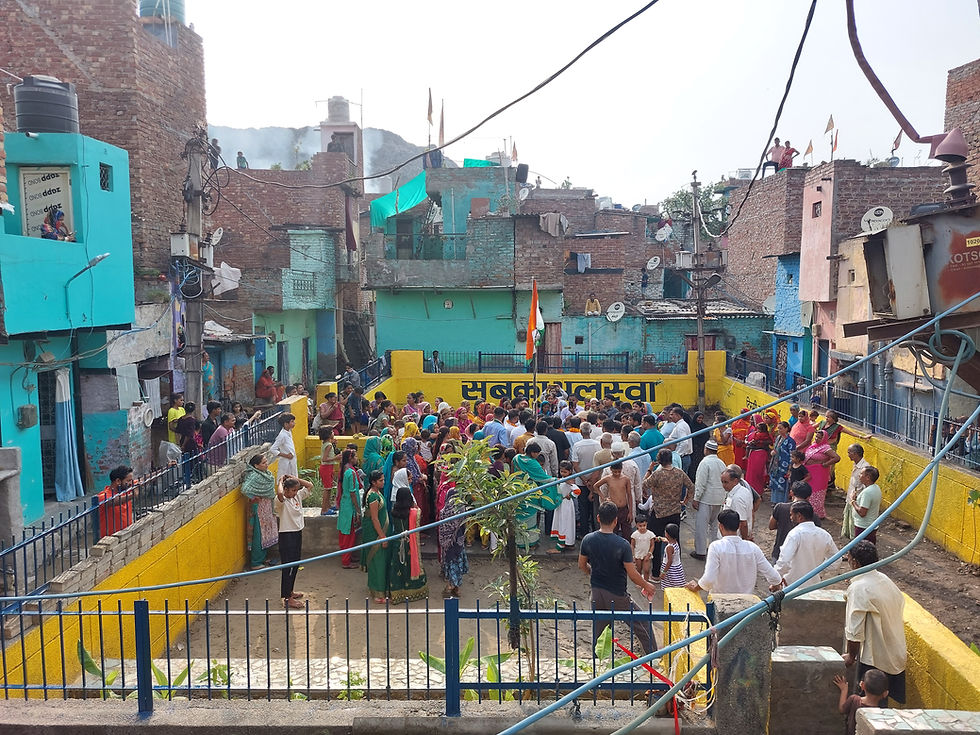From Trash to Treasure: Turning Inert Soil into Building Blocks
- Gunraagh Talwar
- Feb 21, 2023
- 2 min read
Updated: Apr 12, 2023

Bhalswa landfill in Delhi is notorious for being a hub of pollution and poor living conditions. The landfill has over 80 lakh tonnes of legacy waste, which releases methane and leaches water, causing air, water, and soil pollution in the surrounding ecosystem. While biomining at the landfill has helped remove 33% of this waste, it has also led to the creation of a large amount of inert soil, which is unfit for gardening but finds use in filling construction and infrastructure projects.
However, the excess of this material is a major concern for the people and ecology of Bhalswa. The material often causes dust-based air pollution, leading to respiratory problems for residents. Moreover, the landfill’s structures often weaken and collapse over settlements, causing significant damage.
To address this issue, a group of architects and designers have come up with a community-driven exercise around inert soil. They propose turning it into mainstream construction blocks through a simple open-source technique called Compressed Stabilized Earth Block (CSEB). The CSEB technique compresses earth along with stabilizing agents like lime, clay, or cow dung/straw, creating high-density porous blocks, fit for mainstream construction as building bricks or paver blocks. These blocks can retail in the market for up to ₹30 a piece.

The proposed initiative seeks to involve surrounding informal settlements in CSEB production as a green job, with the objective of aiding landfill volume reduction, reducing dust-related air pollution, fostering green jobs and promoting entrepreneurship, and promoting a market for green and upcycled materials like CSEB in Delhi.

The key activities involved in this initiative include material testing and prototyping, community engagement and stakeholder consultations, outreach to small-medium scale development public projects in the city, light infrastructure setup and pilot operations, and material demonstration.

This initiative has the potential to significantly reduce pollution in Bhalswa and provide opportunities for green jobs and entrepreneurship. It is a testament to the power of collaboration and community-driven initiatives in creating sustainable solutions to environmental problems.



Comments